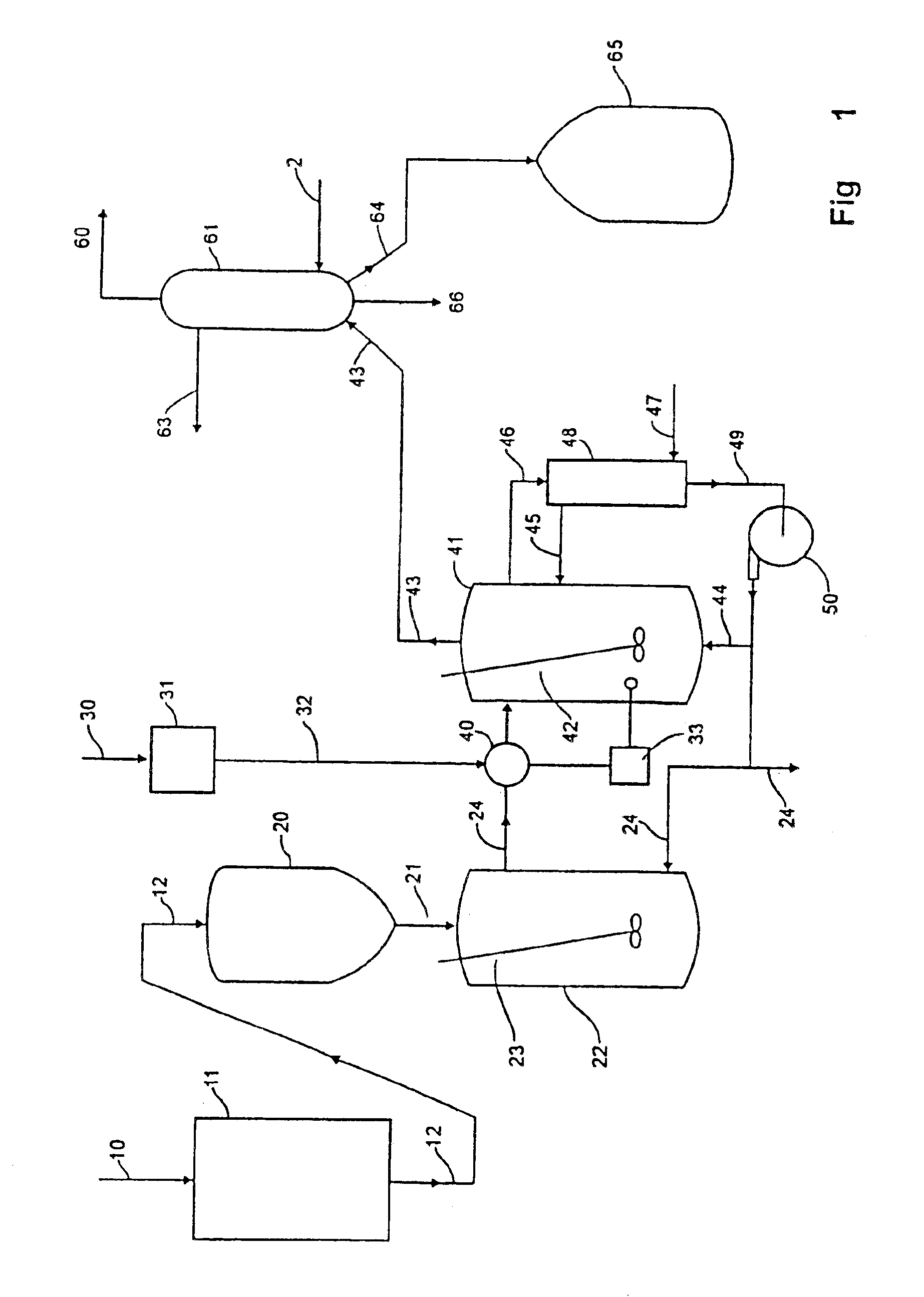Process for waste plastic recycling
a waste plastic and thermal decomposition technology, applied in the direction of hydrocarbon by depolymerisation, chemical apparatus and processes, organic chemistry, etc., can solve the problems of affecting the quality of plastics, so as to reduce the dependence on foreign crude oil and reduce the demand for imported petroleum products.
- Summary
- Abstract
- Description
- Claims
- Application Information
AI Technical Summary
Benefits of technology
Problems solved by technology
Method used
Image
Examples
experiment 1
Before mixed plastic wastes were studied, each individual component plastic was thermally decomposed to have a basis for the difference between mixed and individual resource recovery, and whether the mixed plastic wastes when thermally decomposed had an unexpected interaction.
The thermal decomposition was performed in hot fresh oil, usually at temperatures between 375 and 450° C., as a convenient substance that dissolved the plastics. Further, used or waste motor oil was a convenient fresh oil source and in itself represented a waste product. Other fresh oils that were mostly stable below 450° C. were employed such as fluidized bed catalytic cracker Slurry oil, distillation tower vacuum bottoms, and heavy heating or bunker oil. For convenience, most studies employed a simulated used or waste motor oil which was SAE 50 motor oil.
A laboratory setup was used for preliminary experimentation which consisted of a thermally regulated flask with water condenser. The flask temperature was re...
experiment 2
A review of the tests in Experiment 1 indicated that the apparent optimum temperature for hot oil decomposition of PE and PP was about 425° C., about 400° C. for PS, about 375° C. for PET, and about 325° C. for PVC. Thus a temperature staging process was employed with mixed waste plastic, often called mixed resins. However PET was not employed in this experiment since its solid decomposition product tended to clog the apparatus. A further aspect in omitting PET was that recent trends in recycling of waste plastic have been to separate out the bottles made of PET and recycle them directly to the bottle manufacturer.
A three stage temperature experiment was performed using 270° C. for 20 minutes, 410° C. for 30 minutes, and 450° C. for 45 minutes. The oil to mixed resins ratio was ten to one. The selected reactant mixed resins were proportioned to the amounts reported by Thayer (1989). Three different combinations of oil and sweep gas were employed, SAE 50 oil with and without nitrogen...
experiment 3
It appears from the previous experiments that sufficient free radicals were needed to enhance the rate of decomposition at the low temperatures. Thus, if the fraction of PVC was insufficient in the mixed waste plastic to generate enough free radicals, some source of additional free radical was added. The control mechanism for the process was based upon this action. Since the decomposition reactions were highly endothermic, if insufficient free radicals were present when adequate mixed resins were dissolved, the temperature of the system rose beyond the normal targeted 375° C., and further the amount of distillate formed decreased significantly. To compensate, an additional source of free radicals was added to bring down the temperature and increase the distillate production. Extra free radical precursor up to about 10% of the waste plastic mix did not adversely affect the process.
This suggested that operating under about 375° C. was feasible to decompose the mixed resin and that the...
PUM
| Property | Measurement | Unit |
|---|---|---|
| Temperature | aaaaa | aaaaa |
| Temperature | aaaaa | aaaaa |
| Fraction | aaaaa | aaaaa |
Abstract
Description
Claims
Application Information
 Login to View More
Login to View More - R&D
- Intellectual Property
- Life Sciences
- Materials
- Tech Scout
- Unparalleled Data Quality
- Higher Quality Content
- 60% Fewer Hallucinations
Browse by: Latest US Patents, China's latest patents, Technical Efficacy Thesaurus, Application Domain, Technology Topic, Popular Technical Reports.
© 2025 PatSnap. All rights reserved.Legal|Privacy policy|Modern Slavery Act Transparency Statement|Sitemap|About US| Contact US: help@patsnap.com

